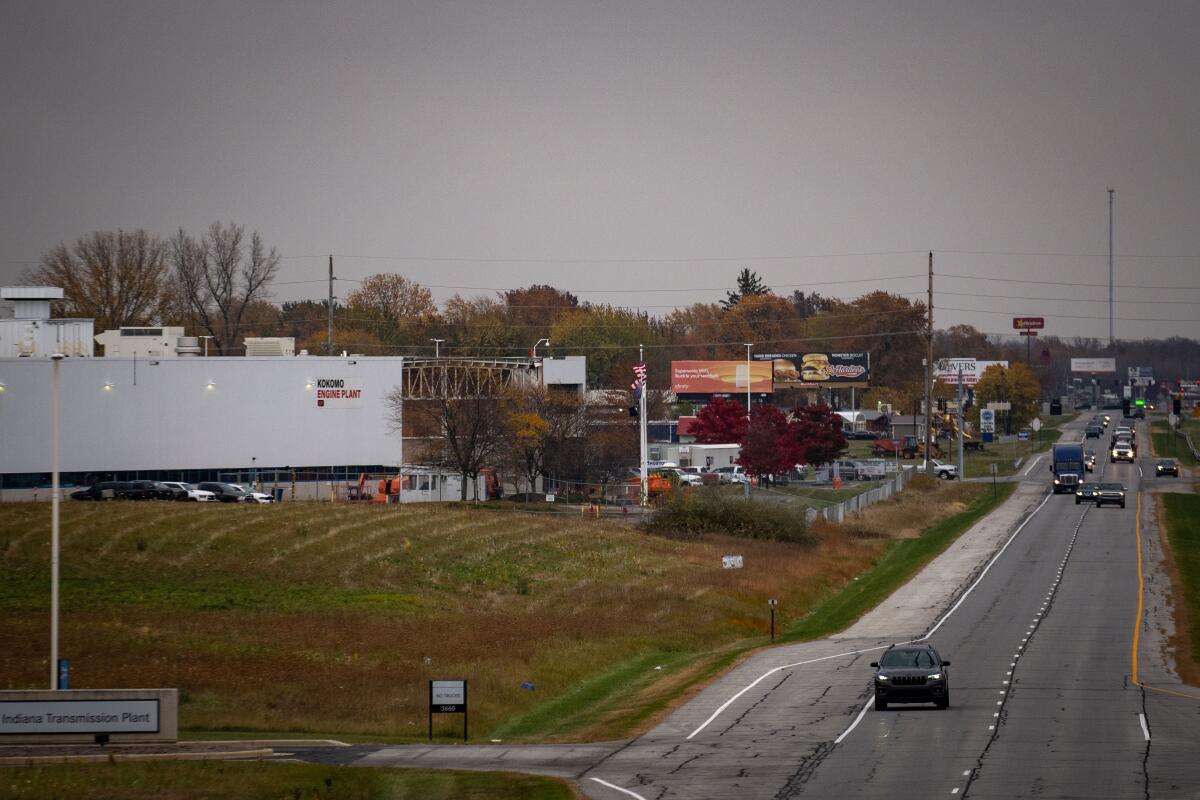Stellantis signs on to California’s emission and EV rules

- Share via
Stellantis NV, owner of the Jeep and Ram brands, has agreed to California’s strict rules to boost electric vehicles in a deal that could shield the state’s clean-car push from attack by a potential Trump administration.
The California Air Resources Board, which regulates emissions in the nation’s most populous state, said the agreement will see the automaker slash emissions through the 2026 model year. The company also agreed to comply with state requirements that zero-emission vehicles account for a growing share of auto sales in the state through 2030, even if the policy is challenged in the future, the agency said in a statement.
The pact marks a stunning about-face for Stellantis, which along with companies such as General Motors Co. and Toyota Motor Co., pushed back on the state’s emissions rules during the administration of former President Trump.
For California policymakers, it could serve as a bulwark in the event that Trump is reelected in November. While in office, Trump moved to strip California of its right to set its own rules under the Clean Air Act.
Trump, who relentlessly criticizes President Biden’s pro-EV policies, has said he would end what he calls the president’s “EV mandate.” Last Thursday, Trump’s campaign declared the former president had “saved the auto industry,” while Biden’s “insane EV mandates would completely destroy it.”
As part of the pact, Stellantis will comply with California’s electric-car mandates even if the policy can’t be enforced “as a result of judicial or federal action,” according to a statement from Democratic Governor Gavin Newsom’s office.
“This agreement is a big deal in accelerating and advancing our efforts,” Newsom said in a conference call with reporters.
In addition to conforming to the same framework as its peers, Stellantis will invest $10 million in public charging infrastructure in California and other states that follow its emissions rules. It will also offer discounts on new cars in disadvantaged communities.
In return, the automaker will have an easier path to meet California’s demands. Stellantis’ sales of plug-in hybrids and EVs in all 50 states can now be counted toward fulfilling the state’s requirements. Previously, the company could only tally deliveries in California and more than a dozen other states that have adopted the standards.
The agreement comes as the Biden administration prepares to finalize the toughest-ever limits on pollution from U.S. cars and light trucks after making changes likely to mollify some automakers.
Stellantis, formed from the 2021 merger of Fiat Chrysler and France’s PSA Group, has struggled mightily to comply with California’s emissions requirements. Long an industry laggard on fuel economy, it restricted sales of gas-powered cars in California and several other states last summer to avoid running afoul of the state’s EV requirements. It later blamed the California rules when it laid off hundreds of workers at its Jeep plant in Toledo, Ohio.
Stellantis now joins other automakers including Ford Motor Co., BMW AG and Volkswagen AG that reached similar agreements with the state, which it previously petitioned to void.
In October, Stellantis alleged that California “improperly adopted” those accords in 2019, which allowed the manufacturers to voluntarily increase the average fuel economy of their fleets to about 50 miles per gallon by the end of the 2026 model year. Stellantis said then it tried to join the deal, but was rebuffed by the California Air Resources Board.
Stellantis CEO Carlos Tavares in a statement said the accord is “win-win solution that is good for the customer and good for the planet.”
More to Read
Inside the business of entertainment
The Wide Shot brings you news, analysis and insights on everything from streaming wars to production — and what it all means for the future.
You may occasionally receive promotional content from the Los Angeles Times.










